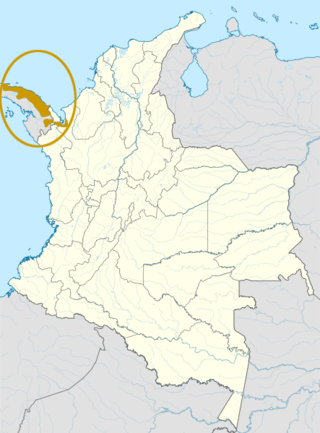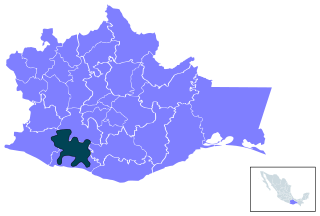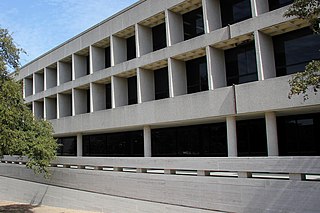
The Library of Congress National Digital Library Program (NDLP) is assembling a digital library of reproductions of primary source materials to support the study of the history and culture of the United States. Begun in 1995 after a five-year pilot project, the program began digitizing selected collections of Library of Congress archival materials that chronicle the nation's rich cultural heritage. In order to reproduce collections of books, pamphlets, motion pictures, manuscripts and sound recordings, the Library has created a wide array of digital entities: bitonal document images, grayscale and color pictorial images, digital video and audio, and searchable e-texts. To provide access to the reproductions, the project developed a range of descriptive elements: bibliographic records, finding aids, and introductory texts and programs, as well as indexing the full texts for certain types of content.

Digitization is the process of converting information into a digital format. The result is the representation of an object, image, sound, document, or signal obtained by generating a series of numbers that describe a discrete set of points or samples. The result is called digital representation or, more specifically, a digital image, for the object, and digital form, for the signal. In modern practice, the digitized data is in the form of binary numbers, which facilitates processing by digital computers and other operations, but digitizing simply means "the conversion of analog source material into a numerical format"; the decimal or any other number system can be used instead.
The Ch'ol (Chol) language is a member of the western branch of the Mayan language family used by the Ch'ol people in the states of Chiapas, Tabasco, and Campeche in Mexico. This language, together with Chontal, Ch'orti', and Ch'olti', constitute the Cholan language group.
The Pacific and Regional Archive for Digital Sources in Endangered Cultures (PARADISEC) is a digital archive of records of some of the many small cultures and languages of the world. They digitise reel-to-reel field tapes, have a mass data store and use international standards for metadata description. PARADISEC is part of the worldwide community of language archives. PARADISEC's main motivation is to ensure that unique recordings of small languages are preserved for the future, and that researchers consider the future accessibility of their materials for other researchers, community members, or anyone who has an interest in such materials.

Emberá is a dialect continuum spoken by 100,000 people in northwestern Colombia and southeastern Panama. It belongs to the Choco language family.

etree, or electronic tree, is a music community created in the summer of 1998 for the online trading of live concert recordings. etree pioneered the standards for distributing lossless audio on the net and only permits its users to distribute the music of artists that allow the free taping and trading of their music.
Language documentation is a subfield of linguistics which aims to describe the grammar and use of human languages. It aims to provide a comprehensive record of the linguistic practices characteristic of a given speech community. Language documentation seeks to create as thorough a record as possible of the speech community for both posterity and language revitalization. This record can be public or private depending on the needs of the community and the purpose of the documentation. In practice, language documentation can range from solo linguistic anthropological fieldwork to the creation of vast online archives that contain dozens of different languages, such as FirstVoices or OLAC.

The Kuna language, spoken by the Kuna people of Panama and Colombia, belongs to the Chibchan language family.

Radio Venceremos was an 'underground' radio network of the anti-government Farabundo Martí National Liberation Front (FMLN) during the Salvadoran Civil War. The station "specialized in ideological propaganda, acerbic commentary, and pointed ridicule of the government". The radio station was founded by Carlos Henríquez Consalvi (Santiago).

Chatino is a group of indigenous Mesoamerican languages. These languages are a branch of the Zapotecan family within the Oto-Manguean language family. They are natively spoken by 45,000 Chatino people, whose communities are located in the southern portion of the Mexican state of Oaxaca.
The Kuikuro are an indigenous people from the Mato Grosso region of Brazil. Their language, Kuikuro, is a part of the Cariban language family. The Kuikuro have many similarities with other Xingu tribes. They have a population of 592 in 2010, up from 450 in 2002.
Nora Clearman England was an American linguist, Mayanist, and Dallas TACA Centennial Professor at the University of Texas at Austin. Her research focused on the grammar of Mayan languages and contemporary Mayan language politics.
The Cabécar language is an indigenous American language of the Chibchan language family spoken by the Cabécar people in the inland Turrialba Region, Cartago Province, Costa Rica. As of 2007, 2,000 speakers were monolingual. It is the only indigenous language in Costa Rica with monolingual adults. The language is also known by its dialect names Chirripó, Estrella, Telire, and Ujarrás.

The Nettie Lee Benson Latin American Collection is part of the University of Texas Library system in partnership with the Teresa Lozano Long Institute for Latin American Studies (LLILAS), located in Austin, Texas, and named for the historian and bibliographer, Nettie Lee Benson (1905-1993). It is one of the world's most comprehensive collections of Latin American materials.

Susan Smythe Kung is the Manager of the Archive of the Indigenous Languages of Latin America at the LLILAS Benson Latin American Studies and Collections at the University of Texas at Austin. Kung is a linguist who specializes in endangered language archiving and the Huehuetla Tepehua language of Hidalgo, Mexico. She earned her doctorate in linguistics in 2007 from the University of Texas at Austin, and her dissertation, A Descriptive Grammar of Huehuetla Tepehua won the Mary R. Haas Book Award from the Society for the Study of the Indigenous Languages of the Americas. Kung is the President of DELAMAN, the Digital Endangered Languages and Music Archiving Network from 2016-2018 and is a founding member of the Linguistics Data Interest Group (LDIG) of the Research Data Alliance.
Megan Jane Crowhurst is an Australian- and Canadian-raised linguist and Professor of Linguistics at the University of Texas at Austin in the United States.
Joel Fred Sherzer was an American anthropological linguist known for his research with the Guna people of Panama and his focus on verbal art and discourse-centered approaches to linguistic research. He co-founded the Archive of the Indigenous Languages of Latin America. Sherzer completed his Ph.D. at the University of Pennsylvania in 1968 and thereafter taught at the University of Texas at Austin for his entire career.

The Endangered Archives Programme (EAP) is a funding programme and digital archive run by the British Library in London. It has the purpose of preserving cultural heritage where resources may be limited. Each year EAP awards grants to researchers to identify and preserve culturally important archives by digitising them in situ. The original archival material does not leave the country of origin, and projects often incorporate local training and career development. EAP focuses on material created before the mid twentieth century.
Nettie Lee Benson was an American teacher, librarian, and archivist in Texas. She worked at the Latin American Collection at the University of Texas for 34 years, later renamed as the Benson Latin American Collection in her honor. After 1949, she taught history and library science simultaneously with her work managing the Latin American Collection. She also co-founded a graduate program in library science for specialists in Latin America.
Patience Louise "Pattie" Epps is an American linguistics professor and researcher at the University of Texas at Austin whose main research focus is on the Naduhup language family, which consists of four extant languages in the Amazon.









